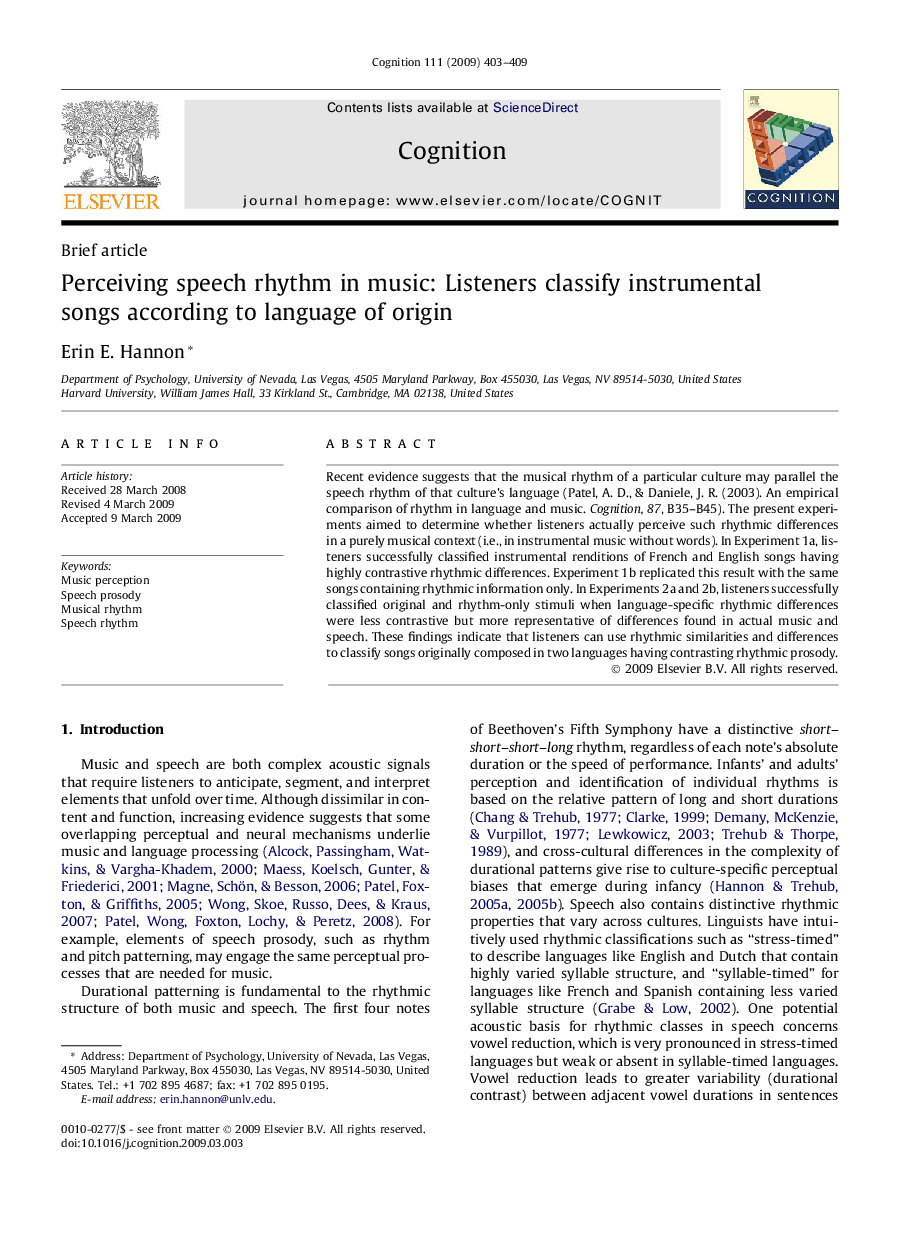| Article ID | Journal | Published Year | Pages | File Type |
|---|---|---|---|---|
| 10457878 | Cognition | 2009 | 7 Pages |
Abstract
Recent evidence suggests that the musical rhythm of a particular culture may parallel the speech rhythm of that culture's language (Patel, A. D., & Daniele, J. R. (2003). An empirical comparison of rhythm in language and music. Cognition, 87, B35-B45). The present experiments aimed to determine whether listeners actually perceive such rhythmic differences in a purely musical context (i.e., in instrumental music without words). In Experiment 1a, listeners successfully classified instrumental renditions of French and English songs having highly contrastive rhythmic differences. Experiment 1b replicated this result with the same songs containing rhythmic information only. In Experiments 2a and 2b, listeners successfully classified original and rhythm-only stimuli when language-specific rhythmic differences were less contrastive but more representative of differences found in actual music and speech. These findings indicate that listeners can use rhythmic similarities and differences to classify songs originally composed in two languages having contrasting rhythmic prosody.
Related Topics
Life Sciences
Neuroscience
Cognitive Neuroscience
Authors
Erin E. Hannon,
